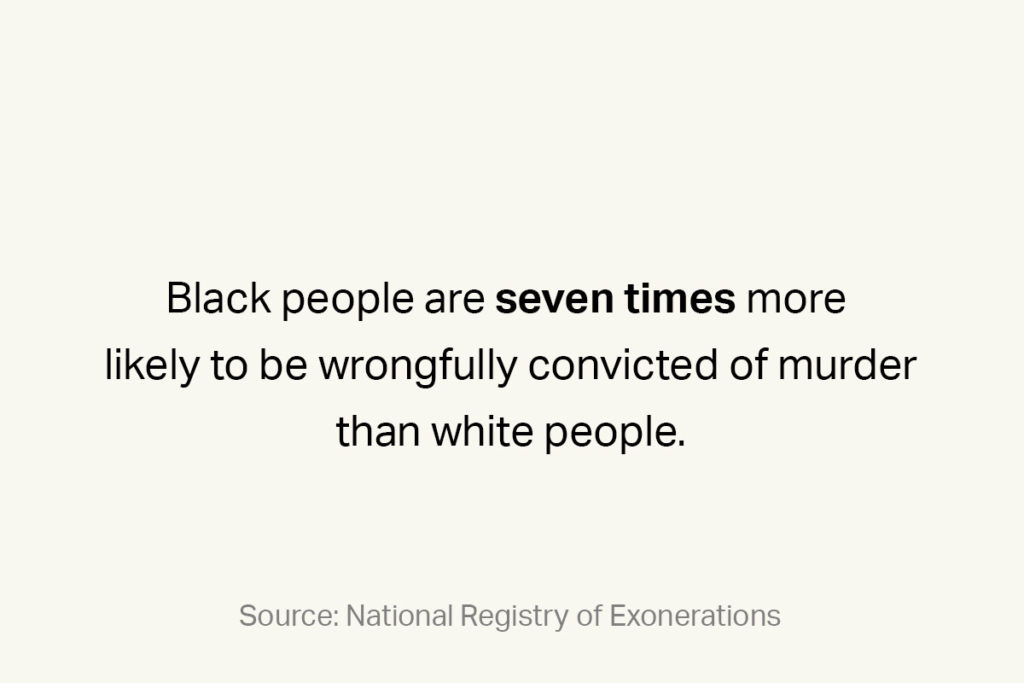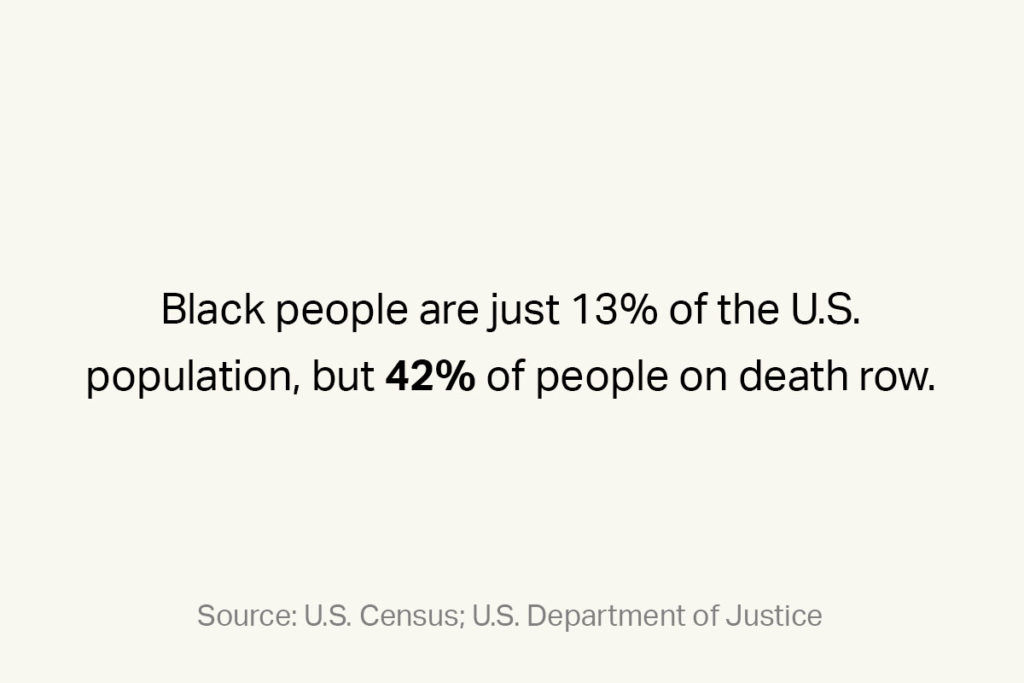During Black History Month, Ledell Lee’s Family Pursues the Truth With Renewed Urgency
02.01.20 By Daniele Selby
Today is the first day of Black History Month — a reminder of the continued need to fight for racial equality. But, for Patricia Young, it’s also a reminder of the shock her family felt 27 years ago this month, when the Jacksonville Police Department arrested her brother, Ledell Lee, and accused him of murder.
Lee was accused of the 1993 murder Debra Reese in Jacksonville, Arkansas, a crime he always said he did not commit, but for which he was ultimately convicted. Lee was executed on April 20, 2017, and proclaimed his innocence until his dying breath.

Ledell Lee (back row, third left) and Patricia Young (front row, second left) with their siblings and mother. [Courtesy of the Young family]
As a poor, black man accused of killing a white woman, the odds were not in Lee’s favor. Innocent black people are seven times more likely to be wrongfully convicted of murder than innocent white people, the National Registry of Exonerations reported.
Studies have found that the race of a victim influences the likelihood of the accused being given the death penalty. Since 1976, nearly 300 black people accused of murdering white people have been executed — that figure is approximately 14 times higher than the number of white people who were executed for murdering white people, according to the Death Penalty Information Center.

Lee’s second trial, which solidified his conviction, began just one week after O.J. Simpson’s acquittal in 1995 — a highly publicized verdict, whose outcome polarized many people along racial divides. Additionally, the lawyer appointed to represent Lee on his appeals was living with a substance use disorder, admitted to being intoxicated during one of Lee’s hearings, and struggled to introduce and argue evidence of Lee’s innocence. And though no physical evidence directly connected Lee to Reese’s murder, an almost all white jury found him guilty and sentenced him to death.
Related: What You Should Know About Ledell Lee’s Case and Execution
Lee’s sentence was not an anomaly. Black people make up just 13% of the U.S. population, but account for 42% of people on death row, according to the U.S. Department of Justice’s data. Yet, of the 123 people on death row who have been exonerated since 1989, more than half were black.
Young and her family are pursuing justice for Lee because, although his life has ended, modern science could still exonerate him.
Since Lee’s execution, the Innocence Project and ACLU have discovered a “wealth of new evidence” that supports his claims of innocence, Nina Morrison, senior litigation counsel at the Innocence Project, said.
The DNA evidence from Lee’s case has never been tested with modern DNA testing methods. And the fingerprints from key areas of the crime scene, which have never been released to Lee’s lawyers for independent examination, are eligible to be searched in the national Automated Fingerprint Identification System database. Doing so could identify the source of the prints in a matter of hours.

On Friday, the Jacksonville Mayor and City Council voted to allow further testing on forensic evidence in the case of Ledell Lee in response to the lawsuit filed by the Innocence Project, the ACLU, Hogan Lovells US LLP, and Arkansas attorney John Tull on Young’s behalf on January 23.
If the test and search results excluded Lee as Reese’s killer and identified the true perpetrator of the crime, it would be the first time that an executed person was proven innocent through DNA or fingerprint testing in the history of the death penalty in the U.S.
It’s not how Young would have wanted her brother to make his mark, but such an outcome would be monumental nonetheless.
“My brother was arrested during Black History Month in 1993. This month, I hope his case will shed light on how people of color are all too often denied access to justice and how, in many instances, the justice system can take one’s life without giving them a fair, unbiased opportunity to prove their innocence.
“I hope that my brother’s situation will help other people obtain the equal justice that every American has a right to expect,” Young said.
Leave a Reply
Thank you for visiting us. You can learn more about how we consider cases here. Please avoid sharing any personal information in the comments below and join us in making this a hate-speech free and safe space for everyone.
May 16, 2021 at 5:24 pm
February 10, 2020 at 5:00 pm
I am so sorry for what your family went through and continues to go through. You are so courageous to keep fighting for truth and justice. I respect your strength so much.
![Patricia Young, Ledell Lee's sister, holds a memorial image of her brother. [Matt White/Innocence Project]](https://innocenceproject.org/wp-content/uploads/2023/02/Ledell-Memorial-image-scaled-1.jpg)
I been saying it for years he innocent he didn’t kill my best friend or my cousin